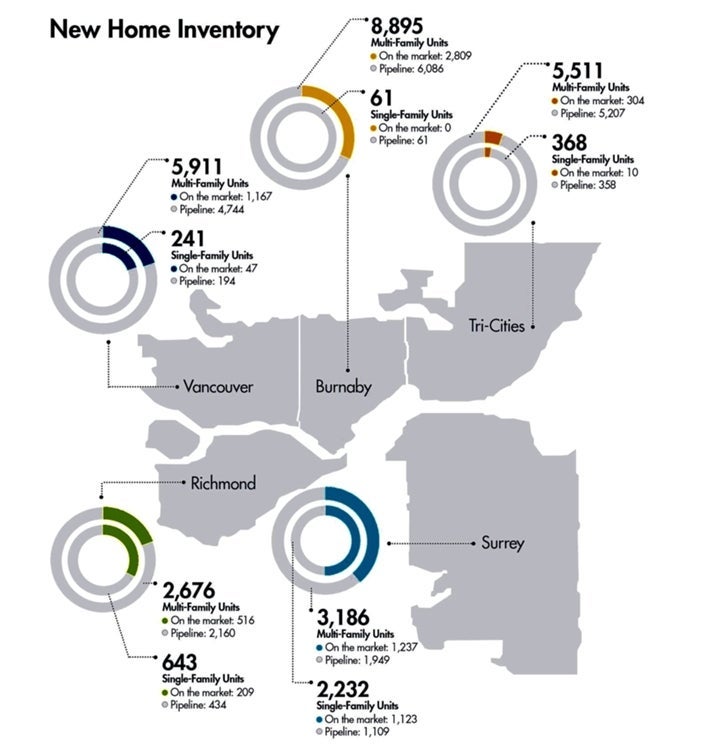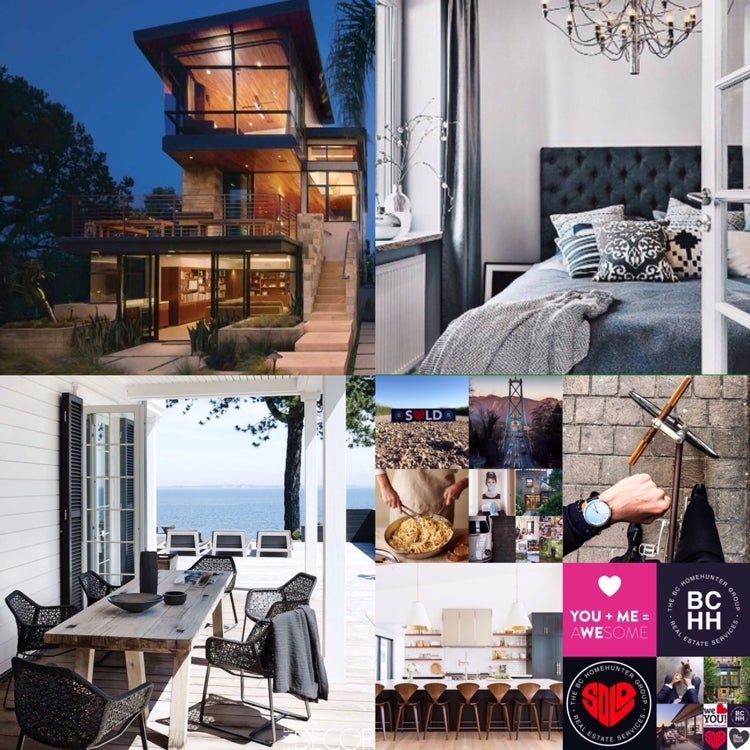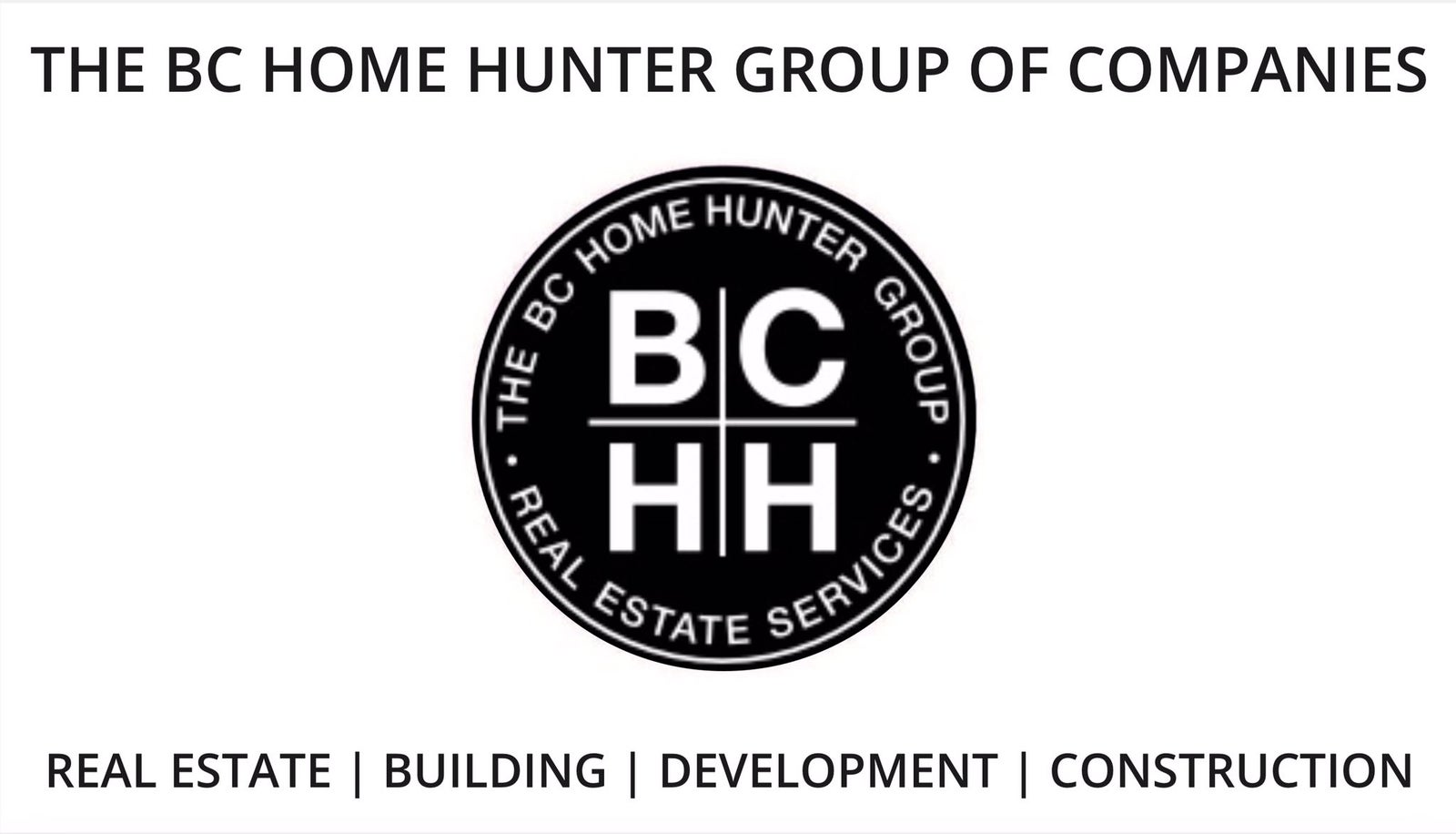Considering Buying A Home In Vancouver? Don't do it! Just kidding.
(April 19, 2017
)
So you’re thinking about Buying a new home in Metro Vancouver, the North Shore, Fraser Valley or somewhere  in our amazing province? Congrats on being awesome!
in our amazing province? Congrats on being awesome!
Don’t buy more than you need – You’ll want a decent-sized place. Like Goldilocks – not too small and not too big. Lean to larger homes if you’re thinking of starting, growing, or supporting an existing family. But don’t buy too much house as you’ll be spending more money on maintenance, energy, and taxes than you should be.
Don’t buy a single family home with less than three bedrooms above grade – Three bedroom homes provide the greatest rate of appreciation as they appeal to the broadest market when it comes time to sell. Young families will want to have their children on the main level (or second) and investor clients will look to three bedroom homes for a better rate of return. Location, size and bedroom count are key Buyer metrics.
Don’t buy a single family home without a master ensuite (or potential for one) – Today’s home Buyer puts a premium on private space. Make sure the home you’re looking to buy has at least a three piece (sink, toilet, shower) – or one can be added in through renovation.
Don’t buy the most expensive home in your neighbourhood – Over renovated or larger than average homes in a neighbourhood are difficult to sell. Buy within a price range or sq. ft range of +/- 10% for similar comparable homes sold over a 12 month period.
Avoid oddballs – Homes with “different” features, weird looking exteriors, or bad floor plans are hard to comp out (provide comparable sales data for). They’ll bring the lowest rate of appreciation, have the highest days on market at time of sale, and are very expensive to bring inline with neighbouring homes.
Avoid lawn furniture – Here’s an insider tip from us. Look for homes without public utility boxes, Canada Post community mailboxes, fire hydrants, etc. Aside from being unsightly, they can limit the parking out front of your home, increase traffic and reduce your yard space.
Avoid power lines and utility sub-stations – While the health implications around power line proximity are uncertain, the ways they can negatively affect value are not. Unsightly and sometimes noisy, they rarely appeal to home Buyer’s and are seen as something that can negatively impact their housing investment.
Avoid bus and skytrain stops – Homes adjacent to bus and skytrain stops deal with noise, increased foot traffic and increases in crime. Unless the idea of having transit-goers waiting on your front lawn intrigues you, then hold off for a better buying opportunity.
Noise Pollution – What you hear impacts your wallet. Avoid trains, plains and automobiles at all costs. Homes backing / fronting high traffic feeder roads, freeways, train tracks, fire and police stations, hospitals and other roadways will always sell for less.
Homes that are hard or expensive to improve upon – Make sure the home you’re looking at has areas that can be opened up, doorways that can be widened, or presents some other option to modernize the plan. Can a rarely used formal dining room be turfed for a larger kitchen with massive island? Can a huge basement family room be refitted to accommodate a family room AND extra bedroom? Can a french door or patio door be added for access to a lux backyard oasis? Can a small nook be converted into a tech zone?
be opened up, doorways that can be widened, or presents some other option to modernize the plan. Can a rarely used formal dining room be turfed for a larger kitchen with massive island? Can a huge basement family room be refitted to accommodate a family room AND extra bedroom? Can a french door or patio door be added for access to a lux backyard oasis? Can a small nook be converted into a tech zone?
Avoid the slobs and noise makers – You can get all of the above right, BUT if your neighbour breeds dogs, throw’s after hour raves, collects junk cars or even has a growop then your home sweet home won’t be so sweet anymore. While neighbours can come and go, there’s no harm knocking on doors BEFORE you write an offer to see who you’ll be spending your days and nights beside. Again, this is where our real estate group come in!
Don’t be afraid to walk away – Don’t become emotionally attached to a property before all the paperwork is signed. See it as a financial transaction—one of the biggest ones most of us will have—as well as a lifestyle decision. And then once the papers are signed and the keys handed over, you can think of the place as your home sweet home.
 in our amazing province? Congrats on being awesome!
in our amazing province? Congrats on being awesome!To help you along, we’ve compiled this handy list of the the types of homes you should NOT buy and what kind of neighbours you should avoid. While not hard and fast rules, they’re a good guideline for getting the most out of your new home.
And remember, you’re new home should improve your quality of life AND be a sound financial investment.
So here’s our list:
Don't buy in Vancouver! Ok, ok we LOVE Vancouver but we absolutely do not like the endless insanity of the Moonbeam run city hall taxes, policies and alt left ideology in so much as the affect it has on you the homeowner!
Don’t buy more than you need – You’ll want a decent-sized place. Like Goldilocks – not too small and not too big. Lean to larger homes if you’re thinking of starting, growing, or supporting an existing family. But don’t buy too much house as you’ll be spending more money on maintenance, energy, and taxes than you should be.
Don’t buy a single family home with less than three bedrooms above grade – Three bedroom homes provide the greatest rate of appreciation as they appeal to the broadest market when it comes time to sell. Young families will want to have their children on the main level (or second) and investor clients will look to three bedroom homes for a better rate of return. Location, size and bedroom count are key Buyer metrics.
Don’t buy a single family home without a master ensuite (or potential for one) – Today’s home Buyer puts a premium on private space. Make sure the home you’re looking to buy has at least a three piece (sink, toilet, shower) – or one can be added in through renovation.

Don’t buy the most expensive home in your neighbourhood – Over renovated or larger than average homes in a neighbourhood are difficult to sell. Buy within a price range or sq. ft range of +/- 10% for similar comparable homes sold over a 12 month period.
Avoid oddballs – Homes with “different” features, weird looking exteriors, or bad floor plans are hard to comp out (provide comparable sales data for). They’ll bring the lowest rate of appreciation, have the highest days on market at time of sale, and are very expensive to bring inline with neighbouring homes.
Avoid lawn furniture – Here’s an insider tip from us. Look for homes without public utility boxes, Canada Post community mailboxes, fire hydrants, etc. Aside from being unsightly, they can limit the parking out front of your home, increase traffic and reduce your yard space.
Avoid power lines and utility sub-stations – While the health implications around power line proximity are uncertain, the ways they can negatively affect value are not. Unsightly and sometimes noisy, they rarely appeal to home Buyer’s and are seen as something that can negatively impact their housing investment.
Avoid bus and skytrain stops – Homes adjacent to bus and skytrain stops deal with noise, increased foot traffic and increases in crime. Unless the idea of having transit-goers waiting on your front lawn intrigues you, then hold off for a better buying opportunity.
Noise Pollution – What you hear impacts your wallet. Avoid trains, plains and automobiles at all costs. Homes backing / fronting high traffic feeder roads, freeways, train tracks, fire and police stations, hospitals and other roadways will always sell for less.
Homes that are hard or expensive to improve upon – Make sure the home you’re looking at has areas that can
 be opened up, doorways that can be widened, or presents some other option to modernize the plan. Can a rarely used formal dining room be turfed for a larger kitchen with massive island? Can a huge basement family room be refitted to accommodate a family room AND extra bedroom? Can a french door or patio door be added for access to a lux backyard oasis? Can a small nook be converted into a tech zone?
be opened up, doorways that can be widened, or presents some other option to modernize the plan. Can a rarely used formal dining room be turfed for a larger kitchen with massive island? Can a huge basement family room be refitted to accommodate a family room AND extra bedroom? Can a french door or patio door be added for access to a lux backyard oasis? Can a small nook be converted into a tech zone?Avoid the slobs and noise makers – You can get all of the above right, BUT if your neighbour breeds dogs, throw’s after hour raves, collects junk cars or even has a growop then your home sweet home won’t be so sweet anymore. While neighbours can come and go, there’s no harm knocking on doors BEFORE you write an offer to see who you’ll be spending your days and nights beside. Again, this is where our real estate group come in!
Don’t be afraid to walk away – Don’t become emotionally attached to a property before all the paperwork is signed. See it as a financial transaction—one of the biggest ones most of us will have—as well as a lifestyle decision. And then once the papers are signed and the keys handed over, you can think of the place as your home sweet home.
There you have it folks, these are just a few of the things we look for when we’re working with Buyer clients, but our best advice is to call us. We’d love to share some nerdy real estate knowledge and help on your Home Buying journey. Don't hesitate to contact us anytime, 604-767-6736.

Categories

Archives
- May 2022 (1)
- November 2021 (2)
- October 2021 (3)
- July 2021 (1)
- March 2021 (1)
- April 2020 (1)
- January 2020 (1)
- October 2019 (1)
- September 2019 (1)
- August 2019 (1)
- June 2019 (1)
- April 2019 (1)
- December 2018 (1)
- August 2018 (1)
- July 2018 (1)
- June 2018 (1)
- April 2018 (1)
- March 2018 (1)
- February 2018 (2)
- January 2018 (2)
- December 2017 (1)
- November 2017 (2)
- October 2017 (2)
- August 2017 (3)
- June 2017 (3)
- April 2017 (3)
- March 2017 (3)
- February 2017 (1)
- January 2017 (3)
- December 2016 (4)
- November 2016 (2)
- October 2016 (3)
- August 2016 (3)
- July 2016 (1)
- June 2016 (3)
- April 2016 (3)
- March 2016 (3)
- February 2016 (10)
- January 2016 (5)
- December 2015 (1)
- November 2015 (4)
- October 2015 (3)
- September 2015 (1)
- August 2015 (3)
- July 2015 (3)
- June 2015 (10)
- May 2015 (4)
- April 2015 (9)
- March 2015 (3)
- February 2015 (5)
- January 2015 (12)
- December 2014 (7)
- November 2014 (13)
- October 2014 (13)
- September 2014 (9)
- August 2014 (4)
- July 2014 (10)
- June 2014 (12)
- May 2014 (10)
- April 2014 (5)
- March 2014 (23)


 Subscribe To This Blog
Subscribe To This Blog © 2004. An independently owned and operated broker member of Sutton West Coast Realty. Each office independently owned and operated.
Sutton and Sutton West Coast are service marks of Sutton West Coast Realty and are used herein under license. Mandeep Sendher is the licensed realtor at The BC Home Hunter Group and though he is not the owner of any BCHH domains, trademarks, branding or content he assumes 100% responsibility for any and all online and offline print material, artwork, reports etc. MANDEEP SENDHER is responsible for all problems and issues including this web site or other BCHH social media platforms or electronic communication.
All photos, artwork and materials are assumed to be in the public domain unless otherwise stated. Copyright claims will be honored upon specific identification of material and immediately dealt with upon request.
The content of this website is protected by copyright law. All rights reserved. Unauthorized use in any way, shape or form is prohibited. Information is deemed reliable but is not guaranteed. Maximum care has been put into the accuracy of the content, but specifications and details should be verified by the parties involved in transactions, and we are not liable for any losses whatsoever incurred as a result of information on this website.
You are not permitted to post on or transmit to or from this web site any unlawful, threatening, libellous, defamatory, obscene, inflammatory, pornographic or profane material, or other content that could give rise to civil or criminal liability under the law.
This web site does not grant you any rights to use our trademarks, service marks, logos, artwork or trade names. The content on this site is protected by copyrights, trademarks and service marks, other intellectual property laws, and other laws and regulations.
The design, layout, graphics, photography are copyrighted and the property of THE BC HOME HUNTER GROUP, and may not be reproduced and/or used for any purposes whatsoever, without written consent. THE BC HOME HUNTER GROUP does not claim to own the rights to any or all artwork, designs, photographs etc, found on this web site or any other or any social media unless otherwise stipulated.
BCHOMEHUNTER.COM
VANCOUVERHOMEHUNTER.COM
FRASERVALLEYHOMEHUNTER.COM
NORTHVANCOUVERHOMEHUNTER.COM
WHITEROCKHOMEHUNTER.COM
LANGLEYHOMEHUNTER.COM
CLOVERDALEHOMEHUNTER.COM
WESTVANCOUVERHOMEHUNTER.COM
PITTMEADOWSHOMEHUNTER.COM
BURNABYHOMEHUNTER.COM
COQUITLAMHOMEHUNTER.COM
DELTAHOMEHUNTER.COM
MAPLERIDGEHOMEHUNTER.COM
PORTMOODYHOMEHUNTER.COM
SURREYHOMEHUNTER.COM
SOUTHSURREYHOMEHUNTER.COM
FORTLANGLEYHOMEHUNTER.COM
MORGANHEIGHTSHOMEHUNTER.COM
604LIFE.COM
© 2004. An independently owned and operated broker member of Sutton West Coast Realty. Each office independently owned and operated.
Sutton and Sutton West Coast are service marks of Sutton West Coast Realty and are used herein under license. Mandeep Sendher is the licensed realtor at The BC Home Hunter Group and though he is not the owner of any BCHH domains, trademarks, branding or content he assumes 100% responsibility for any and all online and offline print material, artwork, reports etc. MANDEEP SENDHER is responsible for all problems and issues including this web site or other BCHH social media platforms or electronic communication.
All photos, artwork and materials are assumed to be in the public domain unless otherwise stated. Copyright claims will be honored upon specific identification of material and immediately dealt with upon request.
The content of this website is protected by copyright law. All rights reserved. Unauthorized use in any way, shape or form is prohibited. Information is deemed reliable but is not guaranteed. Maximum care has been put into the accuracy of the content, but specifications and details should be verified by the parties involved in transactions, and we are not liable for any losses whatsoever incurred as a result of information on this website.
You are not permitted to post on or transmit to or from this web site any unlawful, threatening, libellous, defamatory, obscene, inflammatory, pornographic or profane material, or other content that could give rise to civil or criminal liability under the law.
This web site does not grant you any rights to use our trademarks, service marks, logos, artwork or trade names. The content on this site is protected by copyrights, trademarks and service marks, other intellectual property laws, and other laws and regulations.
The design, layout, graphics, photography are copyrighted and the property of THE BC HOME HUNTER GROUP, and may not be reproduced and/or used for any purposes whatsoever, without written consent. THE BC HOME HUNTER GROUP does not claim to own the rights to any or all artwork, designs, photographs etc, found on this web site or any other or any social media unless otherwise stipulated.
BCHOMEHUNTER.COM
VANCOUVERHOMEHUNTER.COM
FRASERVALLEYHOMEHUNTER.COM
NORTHVANCOUVERHOMEHUNTER.COM
WHITEROCKHOMEHUNTER.COM
LANGLEYHOMEHUNTER.COM
CLOVERDALEHOMEHUNTER.COM
WESTVANCOUVERHOMEHUNTER.COM
PITTMEADOWSHOMEHUNTER.COM
BURNABYHOMEHUNTER.COM
COQUITLAMHOMEHUNTER.COM
DELTAHOMEHUNTER.COM
MAPLERIDGEHOMEHUNTER.COM
PORTMOODYHOMEHUNTER.COM
SURREYHOMEHUNTER.COM
SOUTHSURREYHOMEHUNTER.COM
FORTLANGLEYHOMEHUNTER.COM
MORGANHEIGHTSHOMEHUNTER.COM
604LIFE.COM